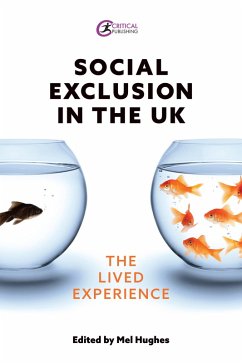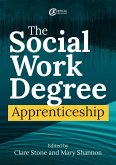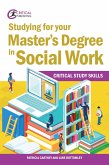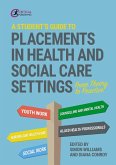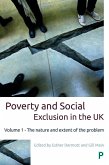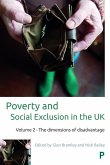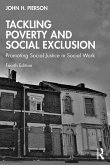In UK society, there are cultural norms and assumptions that affect many marginalised groups and this book aims to address and challenge these through the lens of the people who have lived these experiences.
Social Exclusion in the UK presents a range of lived experiences alongside a critical commentary on the impact of social stigma, exclusion and marginalisation on people's lives. This book's chapters are co-authored by people with lived experience and academics and are all underpinned by the Transformative Learning Theory developed by scholar Mezirow. The marginalised experiences discussed in this book include different types of substance users, care leavers, asylum seekers, offenders, HIV positive, those living in poverty or those who identify as transgender.
What makes this book unique is that it gives a voice to those who have been the most affected by inequality - whether it's economic or social and health inequalities. Those affected are the least likely to be involved in shaping and informing responses to it and this lack of involvement risks the further exclusion of those who are already marginalised.
A few of the ways this book aims to challenge this include: legitimising and prioritising lived experience expertise; fostering critical reflection of our own beliefs and assumptions and drawing on lived experience expertise to inform responses and solutions.
Social Exclusion in the UK presents a range of lived experiences alongside a critical commentary on the impact of social stigma, exclusion and marginalisation on people's lives. This book's chapters are co-authored by people with lived experience and academics and are all underpinned by the Transformative Learning Theory developed by scholar Mezirow. The marginalised experiences discussed in this book include different types of substance users, care leavers, asylum seekers, offenders, HIV positive, those living in poverty or those who identify as transgender.
What makes this book unique is that it gives a voice to those who have been the most affected by inequality - whether it's economic or social and health inequalities. Those affected are the least likely to be involved in shaping and informing responses to it and this lack of involvement risks the further exclusion of those who are already marginalised.
A few of the ways this book aims to challenge this include: legitimising and prioritising lived experience expertise; fostering critical reflection of our own beliefs and assumptions and drawing on lived experience expertise to inform responses and solutions.
Dieser Download kann aus rechtlichen Gründen nur mit Rechnungsadresse in A, D ausgeliefert werden.

